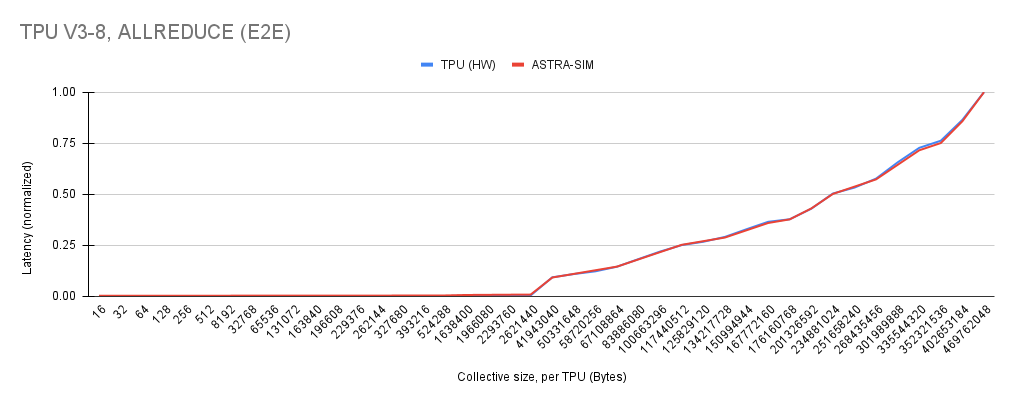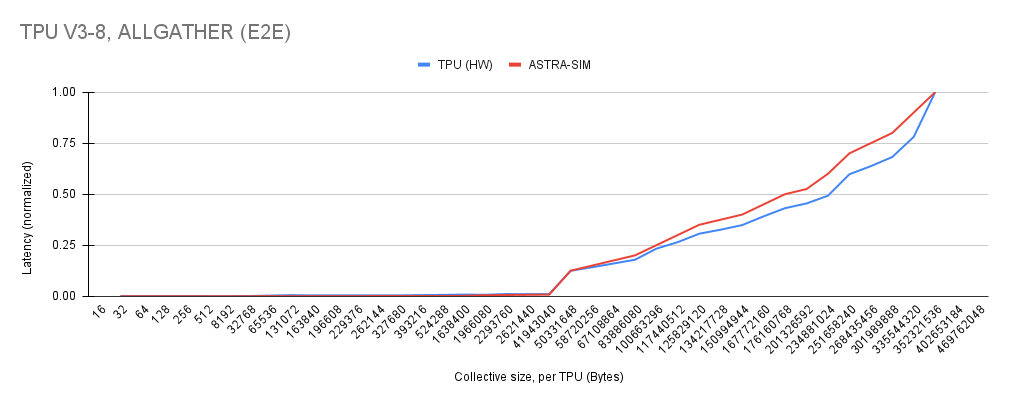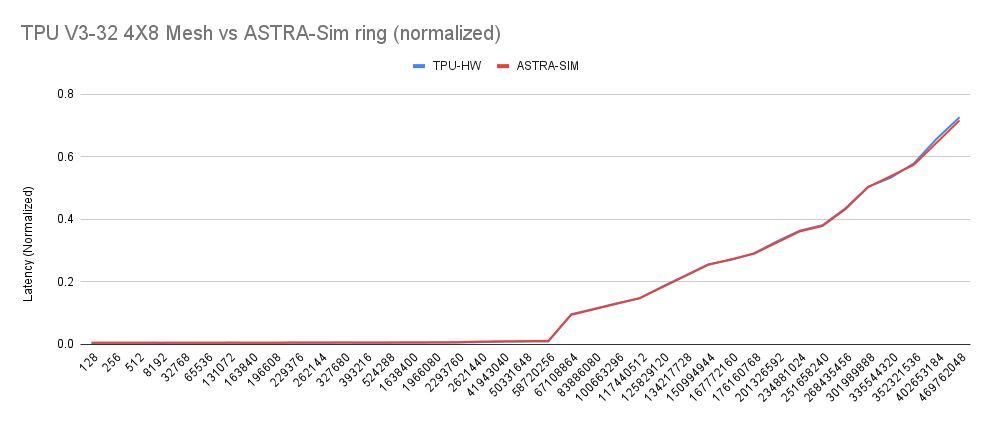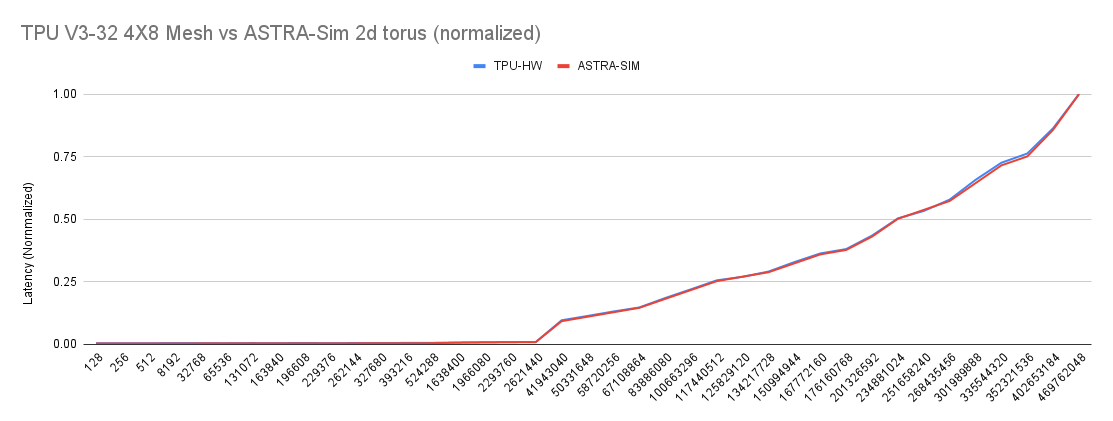Validation on Google’s TPU-v3
Senario - 1: v3-8 nodes
Hardware Setup
8 TPUs connected in a bidirectional ring
Each of the 2 links are 80 GB/s
Jax All-reduce is based on NCCL ring Algorithm
ASTRA-Sim setup
Modelled with the ASTRA-Sim Analytical Backend
Bidirectional Ring
Link Latency is 1 us [as per TPU research team]
Collectives run
All-Reduce & All-gather
Reduction operation - Sum
Results
All Reduce results:

All Gather results:

Senario - 1: v3-32 nodes
Hardware Setup
32 TPUs connected in a Mesh
Each of the 2 (or 3) links are 80 GB/s
Jax All-reduce is based on NCCL ring Algorithm
ASTRA-Sim setup
Modelled with the ASTRA-Sim Analytical Backend
Bidirectional Ring and 2D Torus
Link Latency is 1 us [as per TPU research team]
Collectives run
All-Reduce
Reduction operation - Sum
Results
TPU v3-32 modelled as a Ring:

TPU v3-32 modelled as a 2D-Torus:

Recommended practices
Factor in SW overheads such as JIT’s lazy compilation and dispatch time, by calling and tracking the allreduce over differrent iterations.
factor in pmap release to ensure the code is optimized
Sample code for running allreduce on Jax:
import jax
import jax.numpy as jnp
from jax import pmap
import time
size_of_allreduce_in_bytes = [128]
iterations = [10000]
for iterr in iterations:
for ss in size_of_allreduce_in_bytes:
num_devices = jax.local_device_count()
x = jnp.arange(ss/(4*num_devices))
x1 = [x,x,x,x,x,x,x,x] # for 8 TPUs
x2 = jnp.array(x1)
print(f"running collective of size = {x2.nbytes}")
pmapped_fn = jax.pmap(lambda xx: jax.lax.psum(xx, 'i'), axis_name='i')
start_time = time.time()
for i in range(iterr):
r = pmapped_fn(x2)
end_time = time.time()
print(f"num_iter = {iterr}")
print(f"execution_time = {(end_time-start_time)/iterr}")